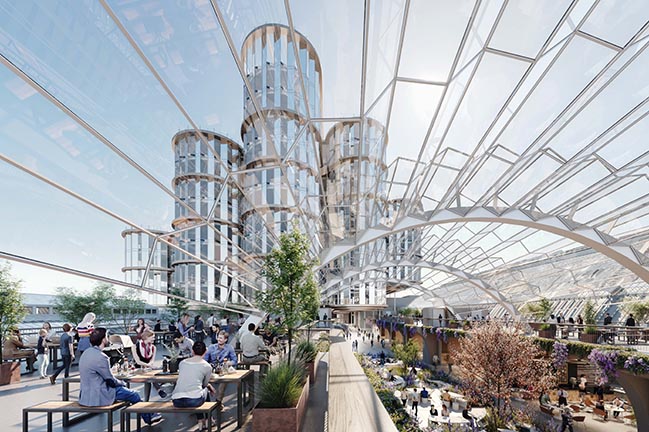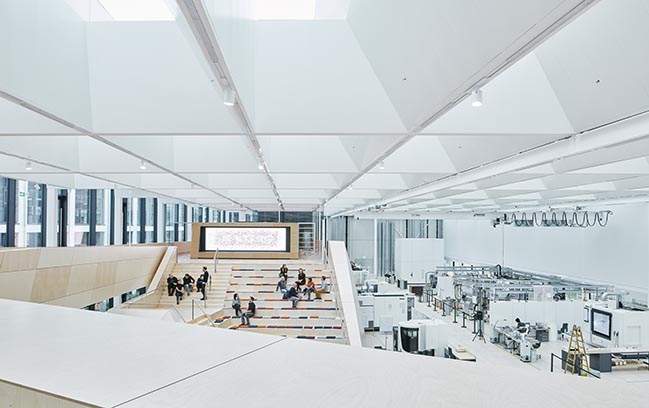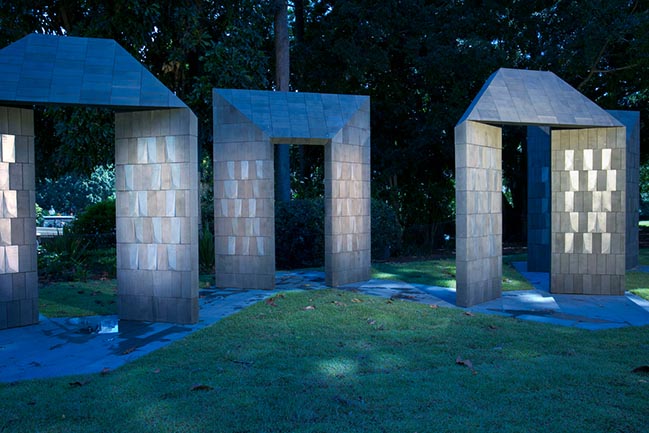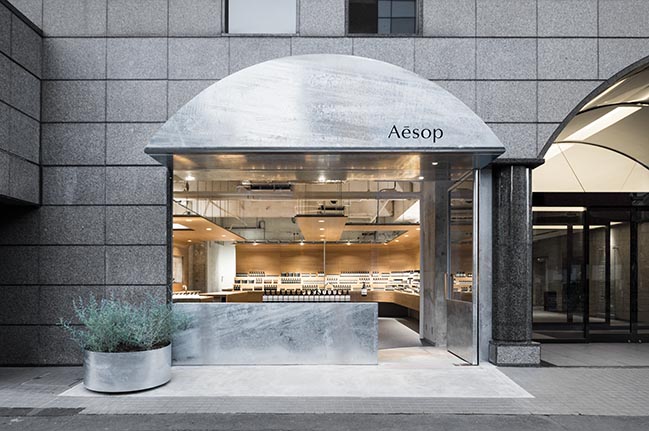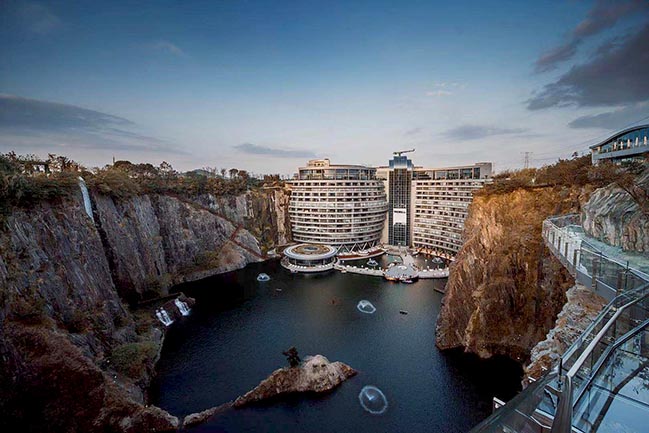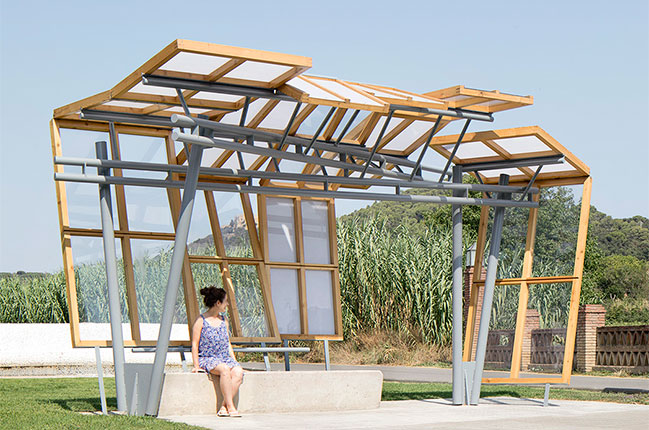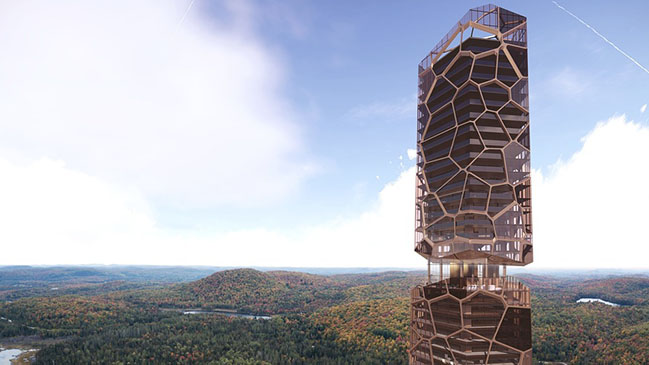02 / 01
2019
Make has completed its sixth building for the University of Nottingham, a Russell Group University currently ranked 17th in the UK.
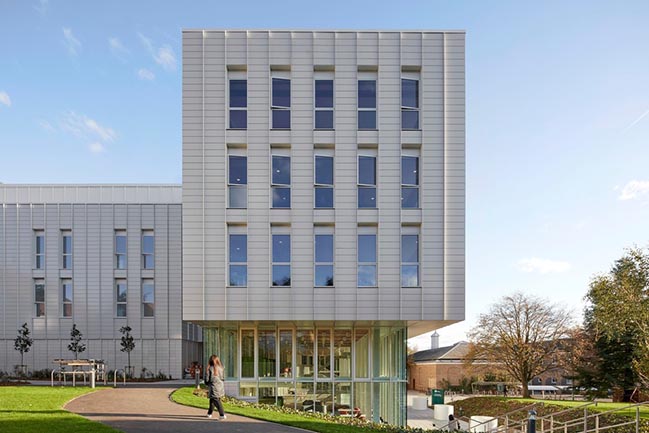
Architect: Make Architects
Project Name: Teaching and Learning Building
Client: University of Nottingham
Location: Greater London, United Kingdom
Year: 2018
Structural Engineer: AKT II
MEP Engineers: Max Fordham
Contractor: Kier
Project Management: Gleeds
Photography: Make Architects
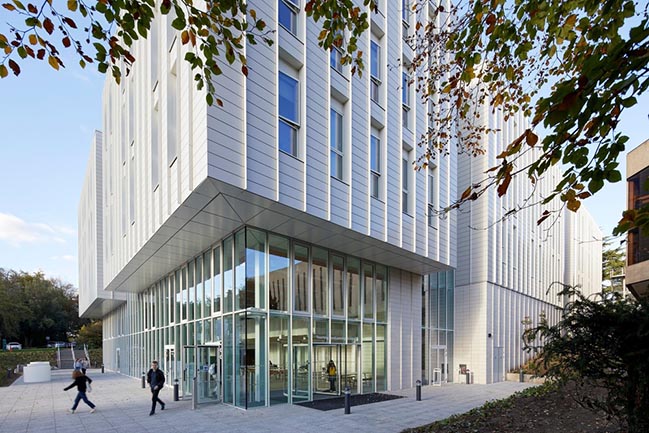
From the architect: Located on the award-winning, nationally recognised University Park campus, the 6,200 m2 Teaching and Learning Building (TLB) was designed to help meet the 2020 vision for the University, to raise its international profile and provide a step change in the way education is delivered by creating a flexible space that deliberately blurs the boundaries between study, socialising and work.
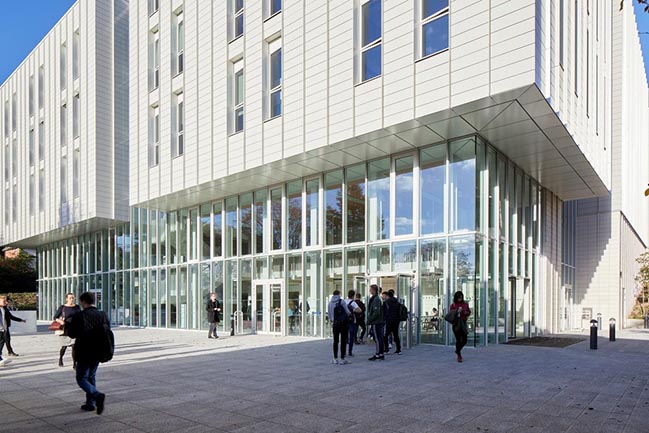
Capable of accommodating up to 2,500 students at any one time, the building includes a broad range of teaching and learning environments from a double height learning hub with a mezzanine for quieter, informal learning and peer mentoring, as well as drop-in desks, shared tables and private study rooms, to reconfigurable teaching rooms, a lecture hall with raked seating and small group discussion rooms. It also has a performing arts space and a number of social learning and breakout areas with views out across the campus.
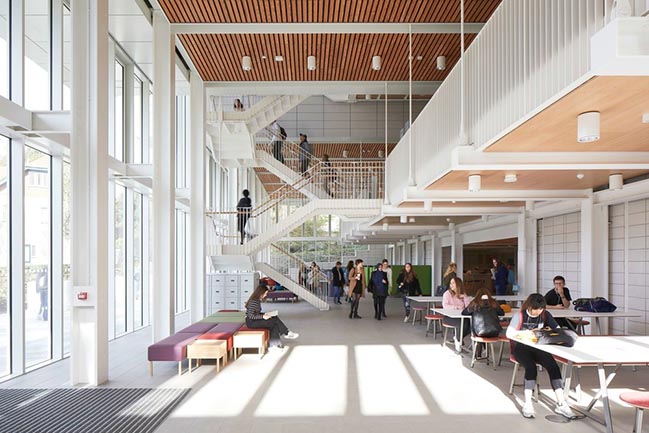
David Patterson, lead architect, said: “We designed the Teaching and Learning Building in collaboration with a number of stakeholders including academics and students to ensure it would meet the needs of the users. It has a flexible framework with column-free floorplates that can be reconfigured by adding or removing internal partitions; generous breakout areas with multiple functions; and movable furniture that lets students and teachers define their own interactive spaces. We also developed standalone teaching modules that could ‘plug into’ vertical and horizontal services, allowing the building to be built in phases, as well as a strategic masterplan for future phased expansion.”
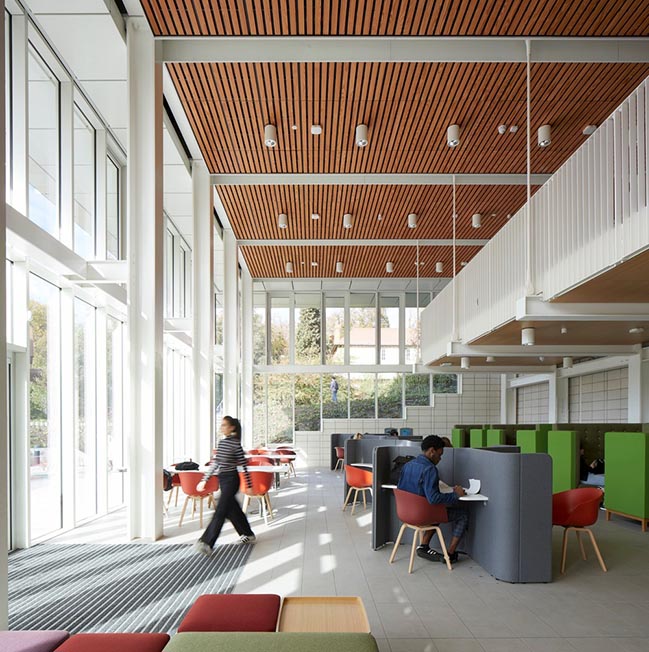
At the heart of the campus and bounded by mature trees, a 20th-century villa and an award-winning 1970s library, the TLB provides a much-needed focal point for the campus and a welcoming nexus for students as they move across the University’s Learning Quarter.
Connectivity was a key focus of the design, both internally and campus-wide. Entrances are located to pick up on key pedestrian routes to maximise permeability and provide accessibility from 360 degrees. Internally, the routes converge on a central light-filled atrium space—a space for socialising, learning and meeting.The more informal learning and social spaces are located around the perimeter of the building, and are designed to promote well-being by offering views of the campus landscape and mature trees.
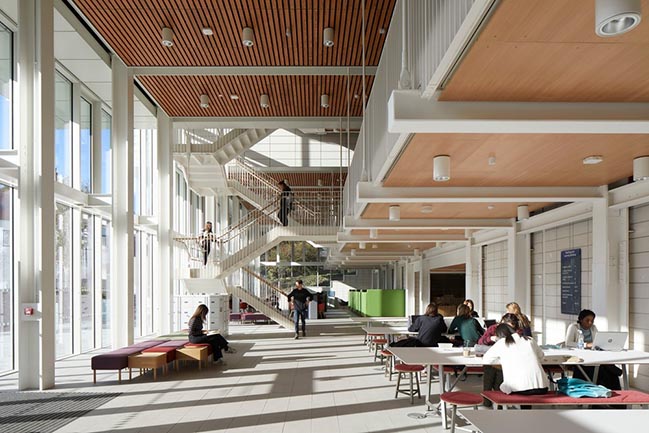
Make developed a clear, simple massing and layout diagram that showed stakeholders and planners that the setting of the adjacent buildings and trees would not be compromised. This involved physical models, refined and developed in collaboration with these parties. This skilled and sensitive approach to scale and massing enabled Make to achieve a successful planning outcome while addressing the needs of end users.
The building takes advantage of the site’s drop in topography to create a double-height Learning Hub and introduce a mezzanine where students can work and socialise. A major cantilever shelters the external space below, which is embedded into the landscape.
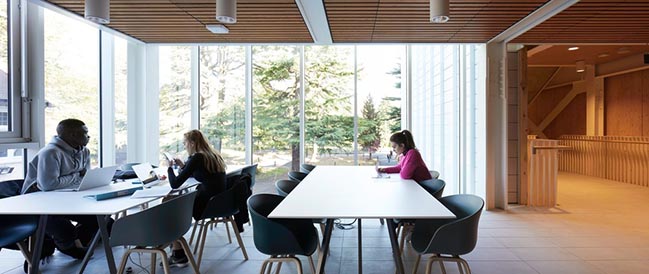
The atrium connects the spaces and provides a central focal point, as well as naturally ventilating the building and drawing in high levels of daylight. Other sustainable measures include a highly thermally efficient envelope with deep-set reveals and high thermal mass to balance heat loss and solar gain. A rigorous planning module was established early on, which enabled standardisation and a significant reduction in the number of building components and waste.
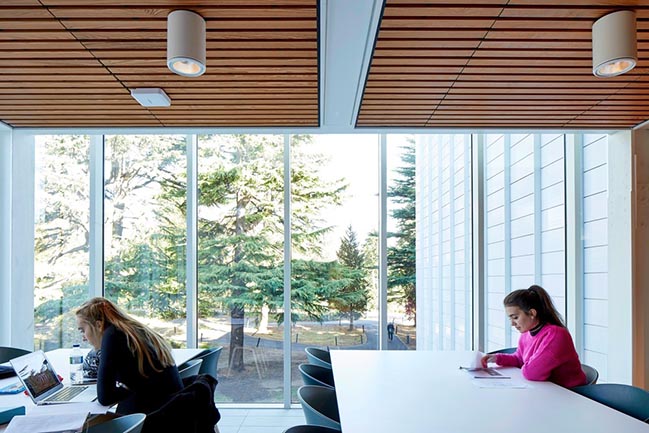
Materials have been chosen for their longevity and simplicity. Externally the building’s upper level has been clad in an architectural terracotta with a robust base/plinth of architectural masonry. To blur the distinction between the inside and outside, these materials have been continued within the building and are complemented by a steel frame. Concrete has been left exposed to give a simple distinctive appearance, with exposed cross-laminated timber adding a tactile warmth.
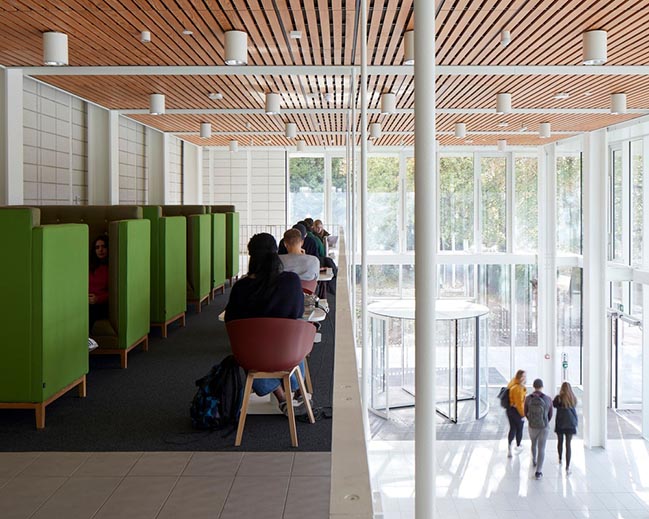
Professor Sarah O’Hara—Pro Vice Chancellor for Student Experience at the University of Nottingham, said: “Part of my role focuses on the personalisation of students' learning experiences. This building plays a large part in facilitating that, providing a range of tech-enriched spaces to enable students to become more active partners in their own education.”
Linda Goodacre, Director of Estates at the University of Nottingham, said: “Make led stakeholder workshops to successfully deliver our vision, and their construction knowledge and experience produced a rational, highly coordinated building, helping to maximise occupancy, sustainability and flexibility to meet our needs both now and in the future.”
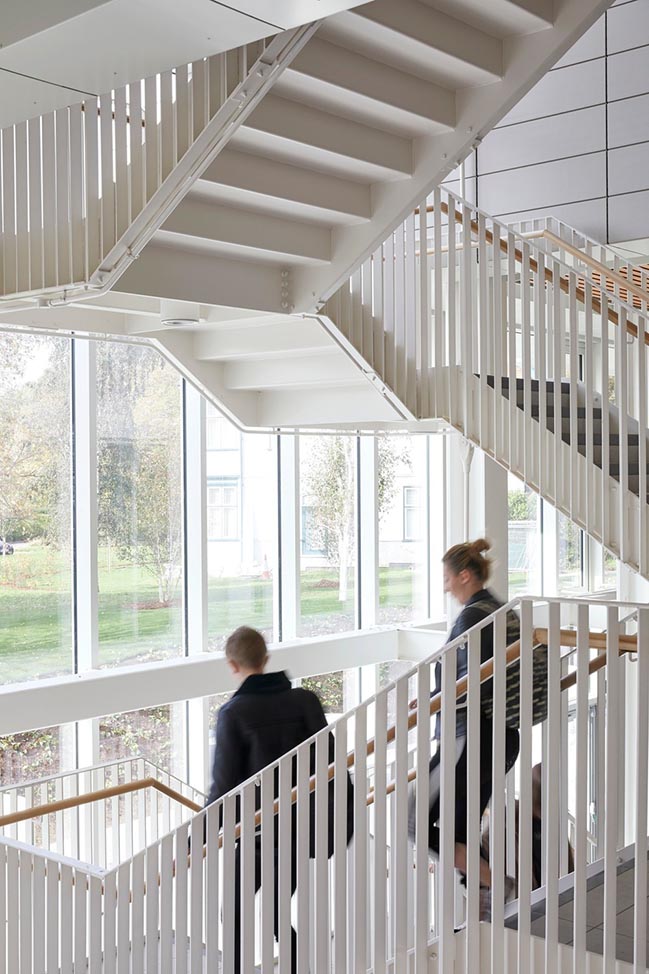
> YOU MAY ALSO LIKE: London Wall Place: Building on history by Make Architects
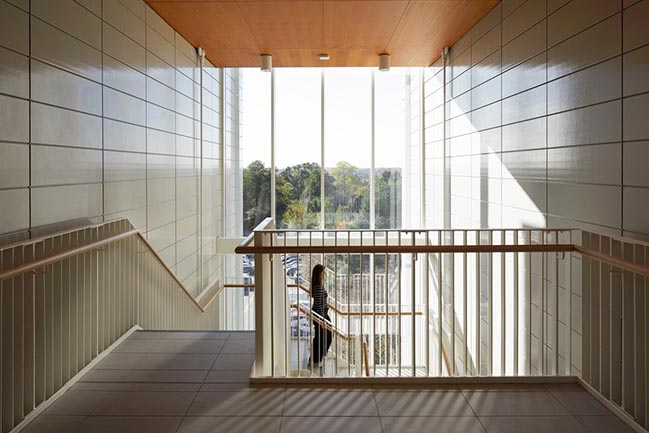

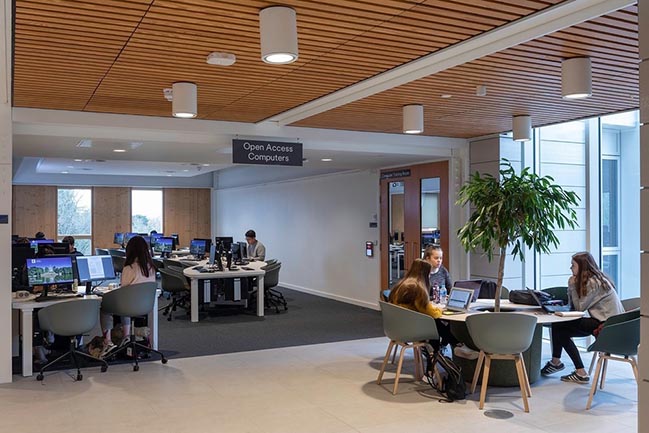
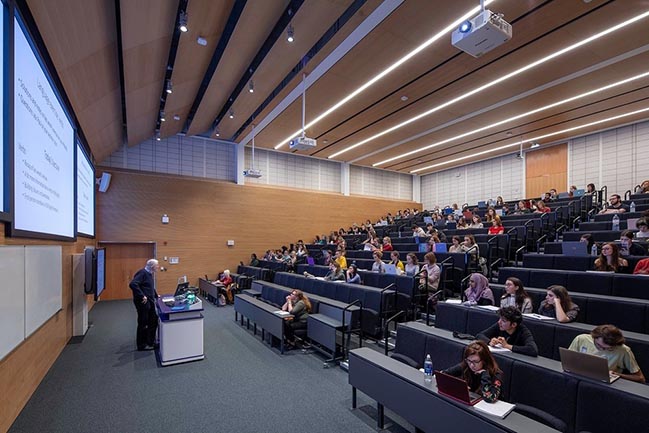

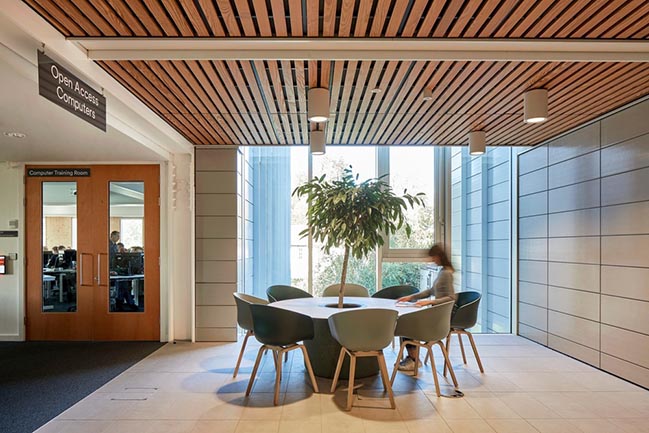
> YOU MAY ALSO LIKE: Humanitas University Student House by Filippo Taidelli Architetto
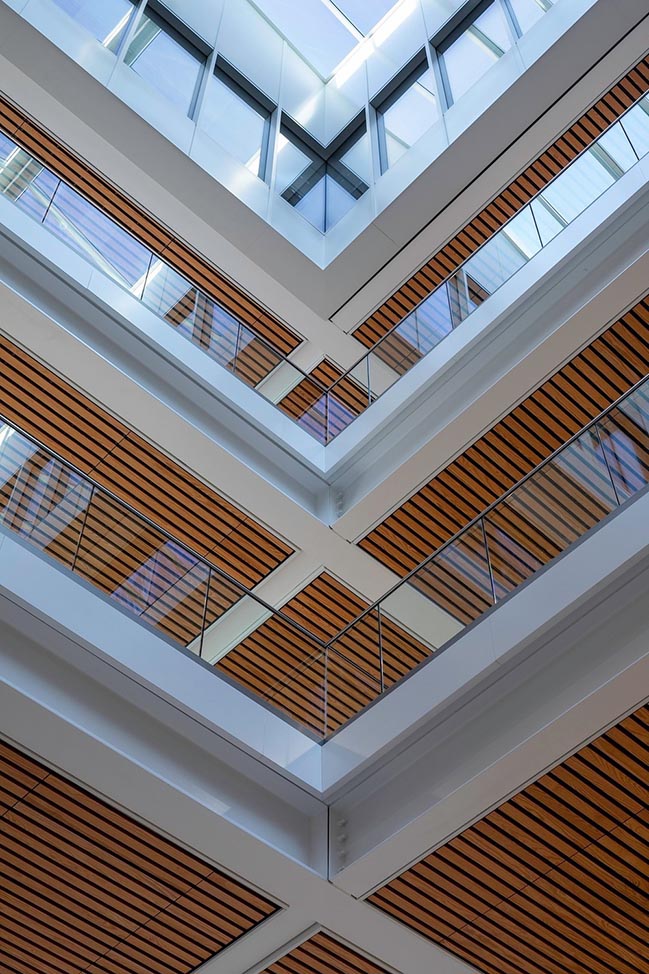
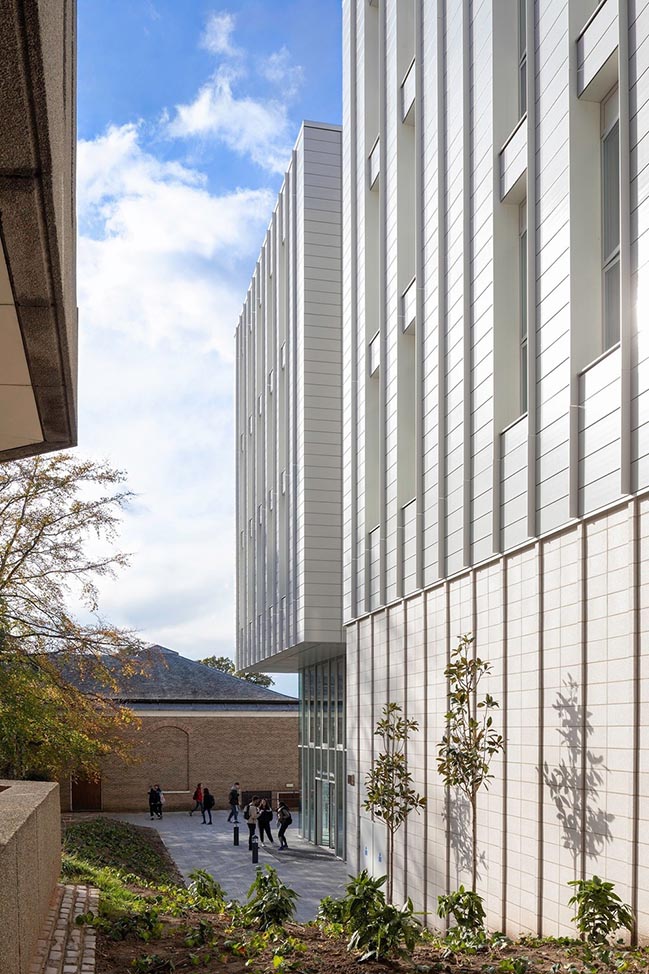
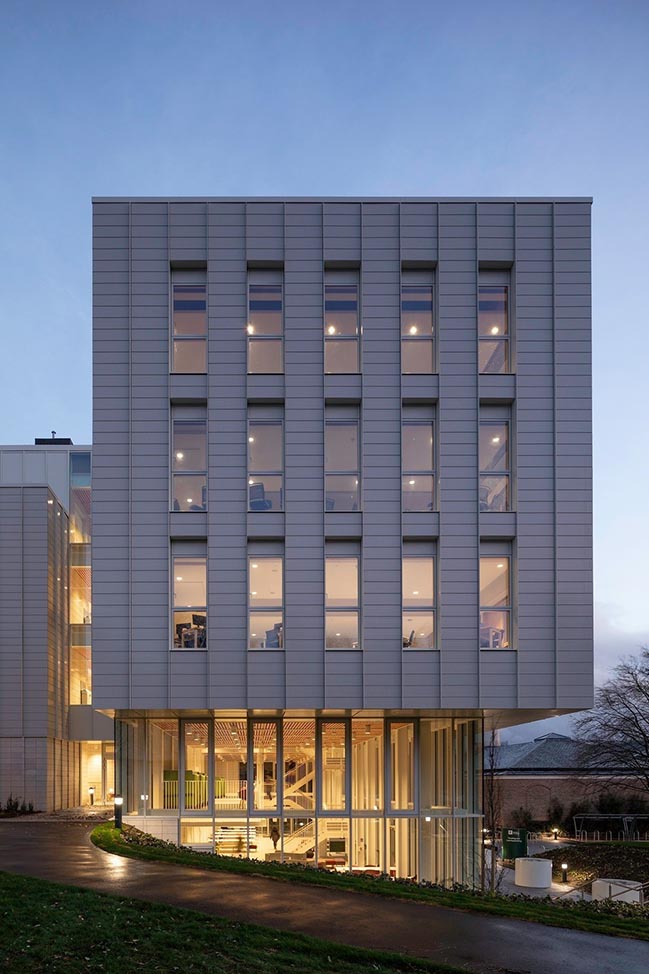
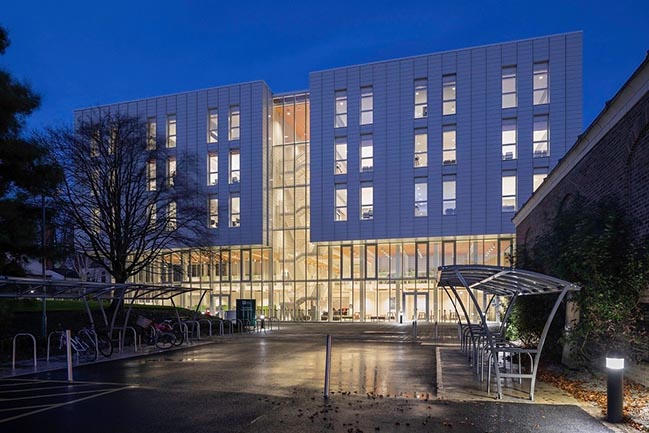
Make Architects completes sixth building for the University of Nottingham
02 / 01 / 2019 Make has completed its sixth building for the University of Nottingham, a Russell Group University currently ranked 17th in the UK
You might also like:
Recommended post: Pekuliari by MU Architecture
